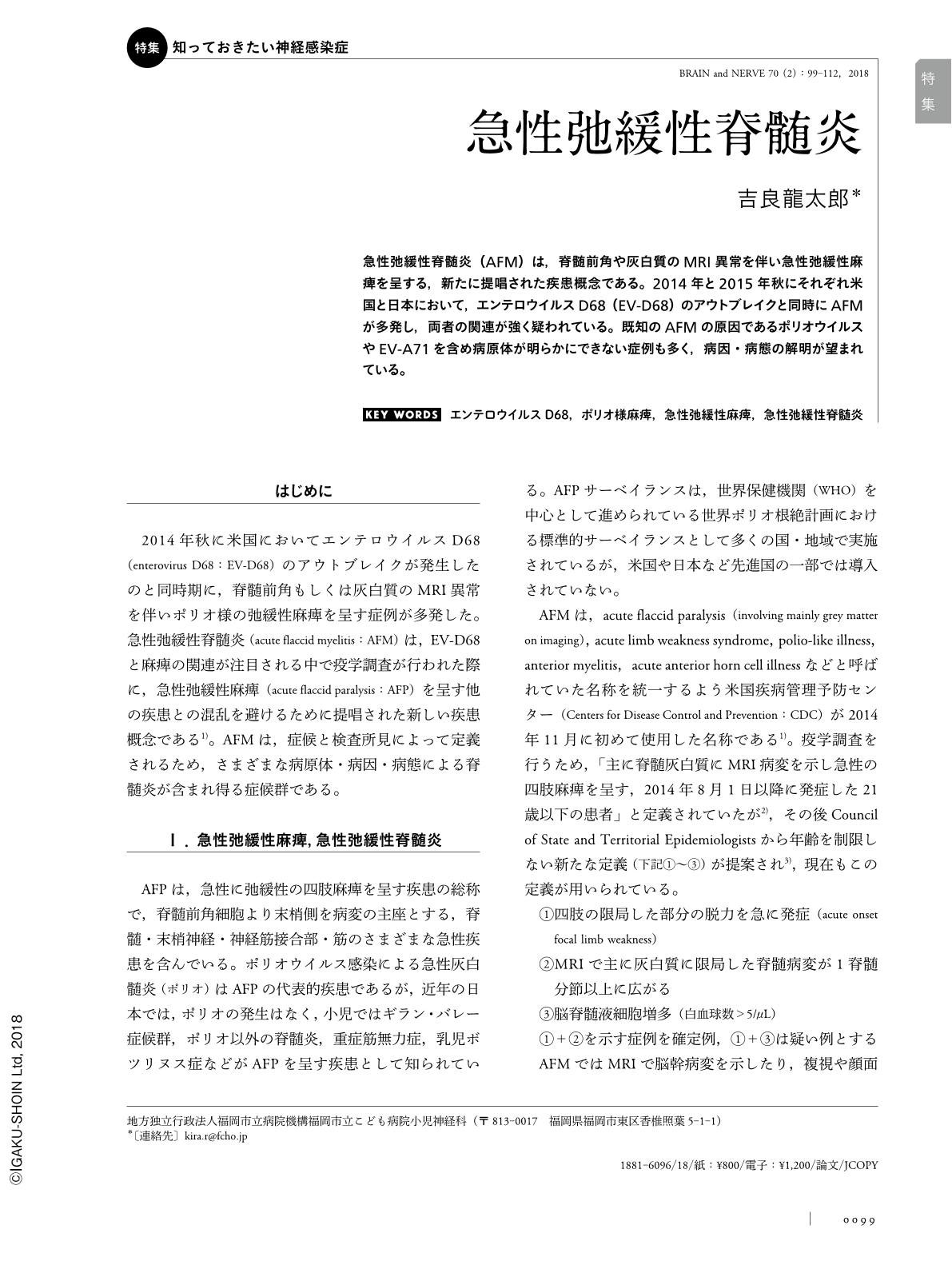Japanese
English
- 有料閲覧
- Abstract 文献概要
- 1ページ目 Look Inside
- 参考文献 Reference
急性弛緩性脊髄炎(AFM)は,脊髄前角や灰白質のMRI異常を伴い急性弛緩性麻痺を呈する,新たに提唱された疾患概念である。2014年と2015年秋にそれぞれ米国と日本において,エンテロウイルスD68(EV-D68)のアウトブレイクと同時にAFMが多発し,両者の関連が強く疑われている。既知のAFMの原因であるポリオウイルスやEV-A71を含め病原体が明らかにできない症例も多く,病因・病態の解明が望まれている。
Abstract
Acute flaccid myelitis (AFM) is a newly defined, rare, but clinically distinct syndrome of acute flaccid paralysis with spinal motor neuron involvement of unknown etiology. Clusters of AFM coincided with a nationwide outbreak of enterovirus D68 (EV-D68) in the United States during autumn to winter of 2014 and in Japan during the autumn of 2015. Although EV-D68 was detected in only 20% of the AFM patients, mainly from respiratory specimens without apparent viral detection from blood and cerebrospinal fluid (CSF) samples, strong temporal associations were noted. Core symptoms of AFM are focal limb weakness and cranial nerve dysfunction with acute onset, although limb paralysis varied in type and severity. Most patients showed extensive longitudinal spinal involvement on magnetic resonance imaging, pleocytosis in CSF, and abnormal motor conduction and/or F-waves in neurophysiological investigations in the acute phase which was within two weeks after onset. Immunomodulation therapy consisting of high-dose intravenous immunoglobulin or pulse methylprednisolone did not improve prognosis. Only about 10% of the patients showed complete recovery of limb weakness, but others had variable residual weakness at follow-up. With no effective treatment identified in the acute stage, studies are required to elucidate the pathophysiology and pathomechanisms of AFM and to develop both preventive measures and novel therapeutic interventions.

Copyright © 2018, Igaku-Shoin Ltd. All rights reserved.


